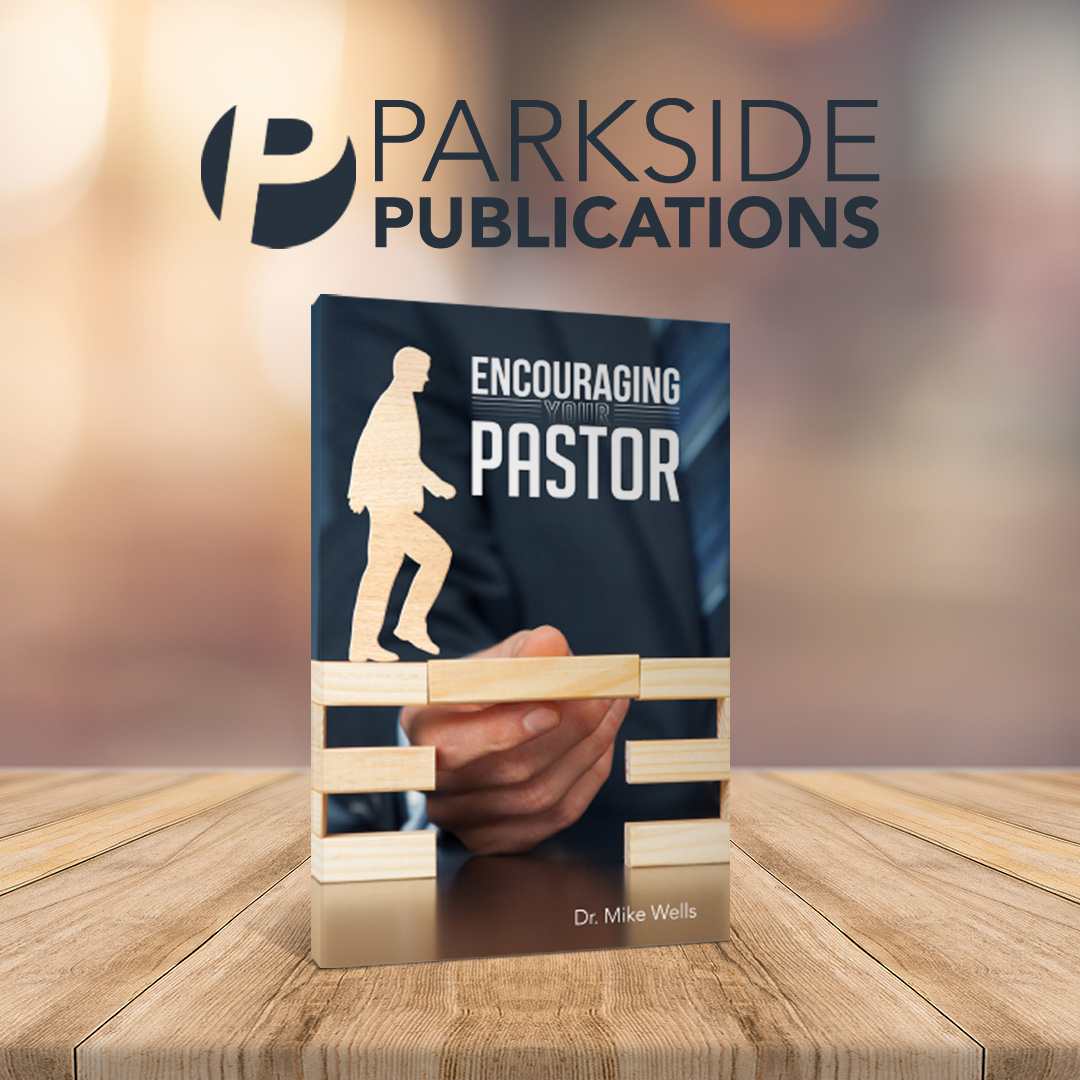When you invite people over to your house, you don’t take them to the clothes hamper and show them your dirty clothes. You don’t want them to smell the dirty clothing or to see your dirty undergarments. The dirty clothes are kept in a private place so that nobody from the outside sees it. Only your family sees the dirty clothes and cares for them as needed.
In the present-day world of technology and social networking, it has become easy for Christians to open the clothes hamper and show the dirty laundry off to the outside world. For some reason, we think that we have a right to tweet or post on Facebook our disagreements with church leadership without hurting our testimony. Sadly, married couples will take to social media to air their differences with their spouse and then wonder why they’re having marital problems. Family members air their differences with their siblings or parents and are amazed when their family no longer wants anything to do with them.
Friend, it’s not everybody’s business to know the “family’s” dirty laundry The world doesn’t need to know what internal problems your church is having. Airing your problems on social media isn’t going to help you reach your community for Jesus Christ. Posting your disagreement with your spouse isn’t going to help your testimony with those you are trying influence at the church, nor will it help you reach your lost friends and neighbors for Christ. Keep the hamper closed! For the sake of Christ, don’t show off your dirty laundry to the world. It’s not going to make your situation better, and it’s not going to increase your effectiveness within the church or with the lost.
I’m reminded of the time when Hezekiah showed his whole kingdom to the commissioners of Babylon. 2 Kings 20:13 shows us what he revealed when it says, “And Hezekiah hearkened unto them, and shewed them all the house of his precious things, the silver, and the gold, and the spices, and the precious ointment, and all the house of his armour, and all that was found in his treasures: there was nothing in his house, nor in all his dominion, that Hezekiah shewed them not.” It wasn’t the commissioner of Babylon’s business to see the whole kingdom. Some things are best left private and dealt with within the family. By exposing his whole kingdom to the servants of Babylon, he destroyed his children’s future.
We wonder why we are losing our children to the world, and we want to blame it on the hard preaching, standards and the busyness of our family’s involvement in church ministries. Maybe one of the biggest reasons we lose the next generation is because we, like Hezekiah, have opened the hamper to the world and shown our dirty clothes. Maybe, if we had dealt with the dirty laundry within the family, our children wouldn’t think that the Christian life is so terrible. Now, don’t take this as a defense to cover up sin. It’s not an attempt to cover sin; it is a plea to Christian brethren to use common and spiritual sense to keep the hamper closed and deal with the dirty laundry in-house.
When it comes to social media and what you should post or read, let me suggest that you always give it the Philippians 4:8 litmus test. Philippians 4:8 says, “Finally, brethren, whatsoever things are true, whatsoever things are honest, whatsoever things are just, whatsoever things are pure, whatsoever things are lovely, whatsoever things are of good report; if there be any virtue, and if there be any praise, think on these things.” If you screened everything you posted or read on the internet or social networking sites, you would quickly find that some things just don’t need to be published or read. This is especially true if you use, “…whatsoever things are of good report…” as one of the rules by which you post or read. Let me give you some suggestions on dealing with your dirty laundry.
1. Just because someone says something doesn’t make it true.
Proverbs 18:13 says, “He that answereth a matter before he heareth it, it is folly and shame unto him.” Just because someone has claimed what they say to be true doesn’t make it true. You would be wise to hold judgment of any situation you read about until you hear the other side of the story. First, you don’t have to take sides in everyone’s drama. Second, you may look like a fool if you take sides without talking directly to both sides to hear their version of the story. It is always wiser to stay out of another’s dirty laundry if you don’t want to get their stink on you.
2. Don’t take people for idiots; they know what you are talking about.
You can think that nobody knows something is going on, but you are opening the hamper to the world when every post or tweet has a theme. Proverbs 12:16 says, “A fool’s wrath is presently known: but a prudent man covereth shame.” The fool runs and posts their anger disguised with spiritual words, but people can smell the dirty laundry through the post. People are not as dumb as we take them to be, and to insult their intelligence by implying your posts have nothing to do with your dirty laundry will only bring shame to you in the end.
3. People can’t read your sarcasm in tweets, texts, posts or blogs.
God commands in Matthew 5:37, “But let your communication be, Yea, yea; Nay, nay: for whatsoever is more than these cometh of evil.” Your ability to be sarcastic cannot be seen in words. Sarcasm can only be read properly in someone’s presence. It is best to only write exactly what you mean and leave the sarcasm out.
4. Don’t come down from the wall to react.
Nehemiah’s response to not come down from the wall when he was criticized and attacked is a good guide for you to use in social networking. You can react to critics, or you can respond to them. Reacting puts you at their mercy; whereas, responding places them under your grace. The best way to respond is to continue doing what you’re supposed to do and completely ignore their attempts to get you to react.
5. Deal directly with those with whom you’ve got the dirty laundry.
I often say that many in Christianity act like gangs with their drive-by shootings. To post for the whole world to see without directly talking to someone is a drive-by accusation. Matthew 5:23-24 says, “Therefore if thou bring thy gift to the altar, and there rememberest that thy brother hath ought against thee; Leave there thy gift before the altar, and go thy way; first be reconciled to thy brother, and then come and offer thy gift.” Friend, don’t be a drive-by Christian; instead, go directly to the one with whom you have a problem and settle it privately.
6. Ask yourself if it would please God before making anything public.
1 Corinthians 10:31 commands, “Whether therefore ye eat, or drink, or whatsoever ye do, do all to the glory of God.” If you asked yourself if everything you post or tweet would bring glory to God, you might find that you don’t have as much to say as you originally thought. If what you are about to post doesn’t bring God glory, it will only bring you shame and regret.
7. Pray instead of post.
Matthew 5:44 says, “But I say unto you, Love your enemies, bless them that curse you, do good to them that hate you, and pray for them which despitefully use you, and persecute you;” You could accomplish a whole lot more through prayer than you will by opening the hamper of your dirty laundry for everyone to see. Prayer will work in the hearts of an individual; whereas, posting your grievance only stirs up anger. Proverbs 15:1 teaches, “A soft answer turneth away wrath: but grievous words stir up anger.” Choose the soft answer of prayer to deal with the “unfair” treatment of others.
8. Use social media as a tool to be a blessing.
James 3:11 properly describes what the social networking world can be when it says, “Doth a fountain send forth at the same place sweet water and bitter?” Social media can be a blessing or a curse. You can either let your interaction in the social networking world be a fountain to bless others, or you can let it be a fountain that tears down and hurts. Ephesians 4:29 says, “Let no corrupt communication proceed out of your mouth, but that which is good to the use of edifying, that it may minister grace unto the hearers.” Everything you do should be to build or encourage others. Don’t let your social networking site become a tool Satan uses to hurt and destroy.
My mother used to say to me and my siblings growing up, “If you can’t find anything good to say, then don’t say anything at all.” That would be wise counsel to follow, not just in your verbal communication, but also in your interaction through social media. Let everything you post be a sweet fountain that blesses, encourages and builds those who read it.
ministrysharing.com

Dr. Allen Domelle
Pastor Allen Domelle was raised in a preacher’s home. At a young 5 years of age he was saved. Later, at the age of 13, he surrendered his life to full-time Christian service. By the time he was 15 years of age, a position opened up in his church that allowed him to start preaching every week. After graduating from high school, he went to Hyles-Anderson College where he graduated. He later received an honorary doctorate from the Bethel Baptist College in Jacksonville, Arkansas.
Bro. Domelle started traveling as a full-time evangelist in 1990. Throughout the years of being an evangelist, God allowed him to preach in 49 of the 50 states and several foreign countries, see thousands of people saved, and thousands of decisions made by believers in those meetings.
On April 15, 2018, Bro. Domelle took the pastorate at Maranatha Baptist Church in Bethany, Oklahoma. He continues to travel and hold meetings while pastoring his growing church. Bro. Domelle also co-founded the Old Paths Conference which is a Baptist conference that strongly promotes the old-time ways. He has authored several books, and is the founder and editor of the Old Paths Journal.
Bro. Domelle and his wife, Sandy, have been happily married since 1994. They have one daughter, Caitlyn.







